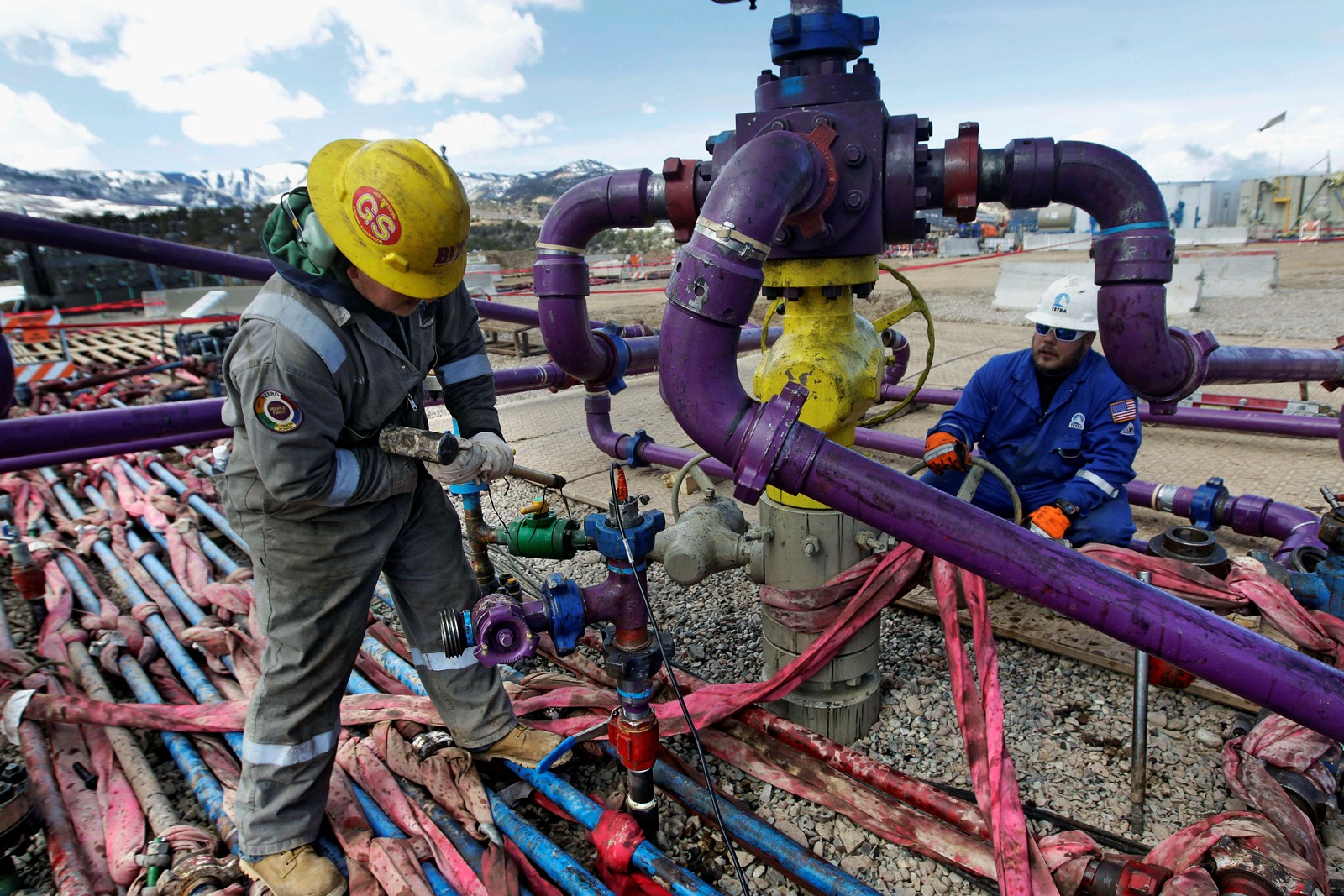
By Taylor Millard
As state court judges issue conflicting rulings on state and city-led climate change lawsuits against major energy companies, legal experts hope the Supreme Court eventually weighs in.
In 2018, Rhode Island became the first state to invoke its laws in a climate lawsuit targeting Chevron, Shell, BP, ConocoPhillips, ExxonMobil, Citgo and Marathon Oil. Seven additional states and more than a dozen cities and counties followed suit months later.
The suits claim Big Oil misled residents about the effect of using fossil fuels, which they say caused higher sea levels, drought and millions of dollars in lost property tax revenue. The states and municipalities hope state courts will give them favorable judgments.
It mirrors the legal strategy states used against Big Tobacco in the 1990s. Those suits resulted in a multi-billion-dollar settlement.
The conditions are different this time around. Unlike the Big Tobacco suits, which involved all 50 states plus the District of Columbia, Puerto Rico and the Virgin Islands, the climate suits involve Democratic-run states and municipalities, with an outlier being the commonwealth of Puerto Rico, overseen by Republican Gov. Jenniffer González-Colón.
Energy companies and supporters argue these cases arise under federal law. They argue the Clean Air Act, passed in 1963, supersedes state pollution laws.
It’s an argument previously backed by the Supreme Court. In the 2011 American Electric Power Co. v. Connecticut case, the justices unanimously ruled the Clean Air Act took precedence over state laws. Eight states had sued power companies claiming their greenhouse gas emissions were a public nuisance.
However, the Supreme Court seems hesitant to get involved. In January, the court rejected a request by energy companies to review a Hawaii Supreme Court decision on Honolulu’s suit. The justices rejected a request by Republican-led states to sue the Democratic states for interfering with state sovereignty two months later.
Philip S. Goldberg, special counsel for the Manufacturers’ Accountability Project, is confident the high court will eventually intervene once the legal process plays out. It could take a while because lower courts tend to weigh in first before the Supreme Court takes up a case.
Goldberg expressed frustration with the timeline.
“With all these cases all over the country, it would have been very helpful for the Supreme Court to at least lay down the standards and the rules of the road for how these cases should be looked at,” he said during a webinar hosted by the Washington Legal Foundation.
Several of the Big Oil climate suits haven’t turned out the way environmentalists hoped.
While judges in Minnesota, Hawaii and the District of Columbia have refused to toss cases, judges in other states either set limits or rejected the plaintiffs’ arguments completely. In Delaware, a Superior Court judge narrowed the state’s suit so it focused solely on emissions originating in Delaware.
Bigger blows to environmentalists happened in Maryland. A Baltimore judge said last summer the city’s suit went too far. Then, in January, a separate judge rejected suits filed by the city of Annapolis and Anne Arundel County. The Maryland Supreme Court may eventually decide on the constitutionality of the suits. In addition, state court judges in New York and New Jersey, respectively, dismissed New York City and New Jersey’s state law lawsuits this year.
Theodore J. Boutrous Jr., Chevron’s lead attorney, said the judicial rulings are proof that the cases have no merit.
“As the New Jersey Superior Court held in dismissing New Jersey’s similar state lawsuit, ‘the leading and most persuasive case supporting dismissal is the 2nd Circuit decision in City of New York. There, the federal appeals court rejected the availability of state tort law in the climate change context,’” Boutrous said.
As the legal process drags on, state lawmakers have made legislative moves. New York and Vermont enacted climate superfund laws last year to start collecting millions of dollars in fines from major energy companies. California and Massachusetts have similar bills under consideration.
The Trump administration made moves to counteract the state laws. President Trump signed an executive order on April 8 calling on Attorney General Pam Bondi to investigate state and local climate laws. “These State laws and policies weaken our national security and devastate Americans by driving up energy costs for families coast to coast,” wrote Trump.
Environmentalists want the state actions to continue without involvement from federal courts.
“Big Oil companies have fueled the climate crisis and deceived the public about it for decades — and now, thanks to the efforts of D.C. and other communities, the fossil fuel industry’s day of legal reckoning is closer than ever,” said Richard Wiles, the president of the Center for Climate Integrity.
Republican attorneys general argue the rulings are more reason for the Supreme Court to get involved.
“Until this is resolved at SCOTUS, I think this is going to be an ongoing issue,” South Carolina Attorney General Alan Wilson said at the Washington Legal Foundation webinar.
Taylor Millard writes about politics and public policy for InsideSources.com.


 PREVIOUS ARTICLE
PREVIOUS ARTICLE
